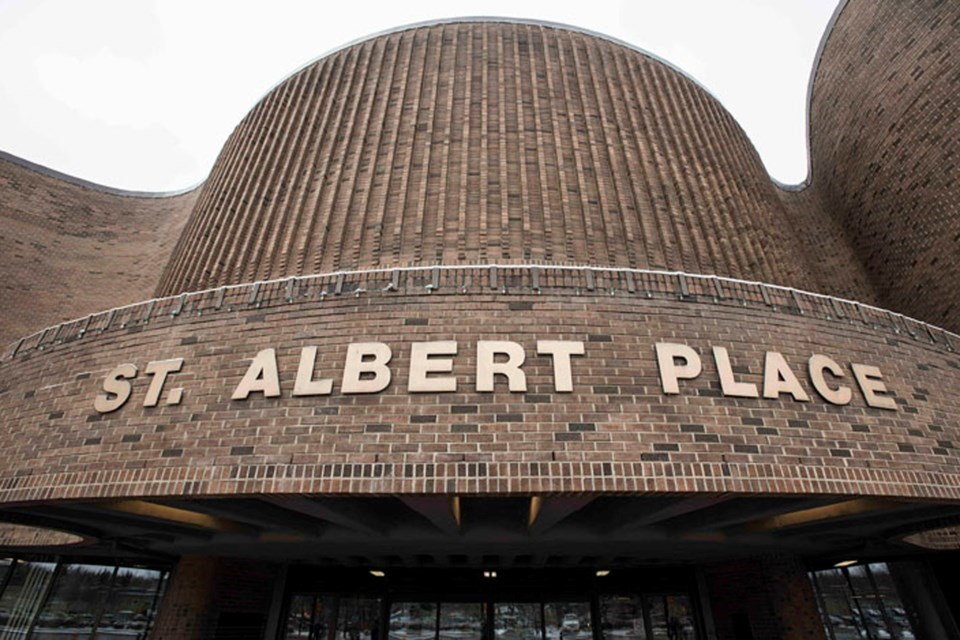Council's committee of the whole has sent administration back to the drawing board on a new “Heritage Recognition” policy designed to replace the existing Founders' Day policy and proclamation.
The new policy was presented on Nov. 14 in response to a motion council passed at the beginning of the year after St. Albert's Arts and Heritage Foundation (AHF) asked not to receive the Founders' Day proclamation that the mayor has read on or near Jan. 14 for the past decade.
The Founders' Day policy proclamation was first enacted in 2013 to “celebrate the anniversary of the founding of the community of St. Albert,” and has been presented to the AHF every year since.
The AHF asked Mayor Cathy Heron not to read it in 2023, as well as the year prior, as the foundation felt the policy needed to be modernized.
“They highlighted that the existing policy mainly centred on the establishment of the Mission settlement in 1861 and the missionary's legacy,” a report to council written by the city's director of community services, Elizabeth Wilkie, states.
“Furthermore, they identified that the proclamation had a limited scope, giving prominence to only a portion of the contributions to St. Albert's history while overlooking others.”
The actual Founders' Day proclamation begins by addressing that the Cree had been living in the area, which they called Mista-sakahikun, for at least 5,000 years. The proclamation then states that Métis people employed by the Hudson's Bay Company and the Northwest Company lived in the area and continued to do so after the fur trade, and then in 1861 Father Albert Lacombe and Bishop Alexander Taché created the St. Albert Mission, effectively granting the community the name St. Albert.
Heron still read the proclamation this year, although she added a preamble to address the AHF's concerns, and council subsequently passed a motion to have administration review the policy.
After reviewing the policy, Wilke's report explains administration and the AHF decided it would be best to have council rescind the Founders' Day policy and replace it with a new Heritage Recognition policy.
A draft of the new policy doesn't include a proclamation of any sort, and simply states that it's council's responsibility to “recognize St. Albert's rich cultural history by other means each year, in its discretion.”
After an hour of conversation and debate, the committee of the whole voted to rescind the Founders' Day policy but refer the Heritage Recognition policy back to administration for substantial revisions as many members of council said they thought the new policy failed to specifically recognize any of the city and land's history.
The new policy, as drafted, doesn't include a historical timeline of St. Albert of any sort, and instead includes a single sentence that reads: “the city shall acknowledge that First Nation Culture has always existed and is inextricably woven into memory, culture, place and practice, and that people from all walks of life and from every community contribute to the rich cultural heritage of the community.”
The policy makes no mention of Father Lacombe or the St. Albert Mission.
“I feel like we're watering down one for the other when we could have both,” said Coun. Shelley Biermanski, arguing that there's a difference between the heritage and the founding of St. Albert.
“I see the new [policy] as just eliminating history essentially... it's already in the policy acknowledging First Nations [and] the new policy is taking that out of there so it's not mentioned any longer.”
Coun. Wes Brodhead said he agreed that more care should be put into the wording of any proclamation the city has regarding history, but not having an annual proclamation recognizing St. Albert's history is a disservice to the community.
“Do we need to tell stories differently? Absolutely. Does it need to be more inclusive? For sure. But I think... if we lose the idea that our chief elected official is going to stand up and we're going to celebrate our community on one day, every year... then we lose the idea behind it in the first place,” Brodhead said.
“We do have something to celebrate, and yes we need to start the story a lot earlier than [1861] but we need to include the stories because the people that were in this land 5,000 years ago, they were as much a founder as Father Lacombe.”
Heron said she wants to have a new policy in place because having a city policy that states Jan. 14, 1861 is the day St. Albert was founded made her uncomfortable.
“That's the policy statement, and that's why I'm uncomfortable,” Heron said. “Because [people] were here before Jan. 14 1861.”
“That's why we have to rescind it otherwise I'm stuck with this, and last year when [AHF] asked us not read it, I couldn't because it's in policy.”
As a result of the committee's discussion, administration has been tasked with adding a timeline of key dates and milestones in St. Albert's history, as well as a definition of what being a founder means.
A revised version of the draft policy will be brought back to council before April of next year.




